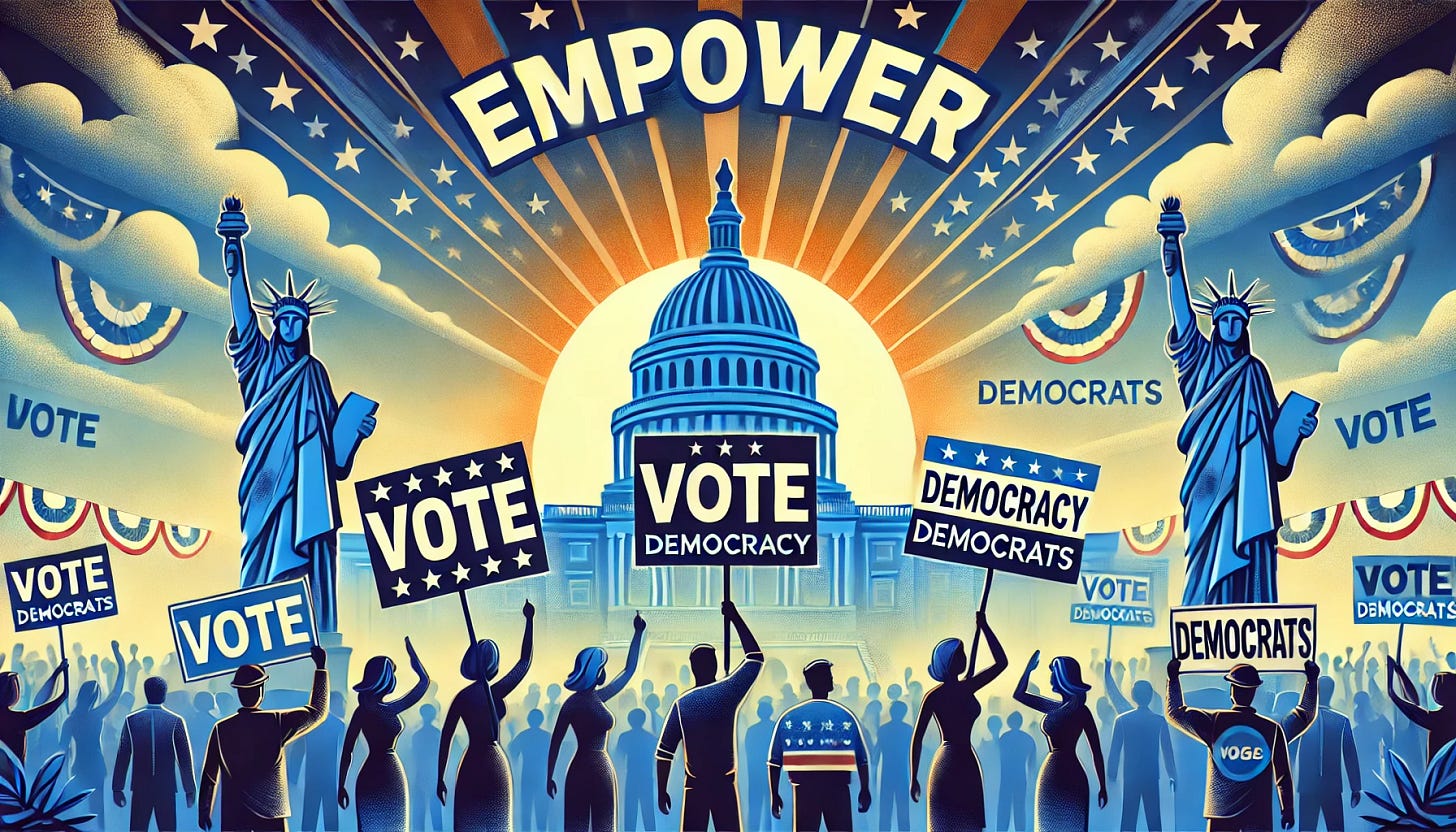🟦Supporting Liberal, Progressive, Democratic Officeholders & Candidates
A guide to advocacy and training groups that build Democratic power and promote liberal and progressive leadership.
As we look toward the pivotal 2026 and 2028 elections, it’s vital to connect with organizations committed to empowering Democrats at all levels—especially officeholders and candidates advancing liberal and progressive values.
This guide highlights key national and Washington state organizations that recruit, train, fund, and support Democratic leaders—from grassroots activists to seasoned legislators. Whether you want to volunteer, donate, or run for office yourself, these groups offer many ways to get involved.
Progressive Policy Networks and Organizing
These groups support elected Democrats with ideas, policies, and peer networks.
Center for American Progress (CAP)
CAP is a progressive policy institute that supports elected officials by providing research, policy recommendations, and advocacy strategies to advance a liberal agenda.
Local Progress is a national network of progressive elected officials, providing support and resources to local leaders committed to advancing social and economic justice.
NewDEAL connects and supports state and local elected officials committed to progressive policies, focusing on innovative solutions and leadership development.
The Aspen Institute's Leadership Programs
The Aspen Institute offers leadership development programs that empower elected officials to implement progressive policies and enhance their governance skills.
Candidate Recruitment, Mentorship, and Support
These groups help new candidates—especially from underrepresented communities—run and win.
Emily's List is dedicated to electing pro-choice Democratic women. They provide training, funding, and strategic support to female candidates.
This organization focuses on recruiting and supporting young progressive candidates running for office. They offer training, resources, and mentorship for candidates.
The Collective PAC works to increase the number of Black Americans in elected office by providing financial support, training, and resources to Black candidates and advocating for policies that promote diversity and inclusion within the party.
Progressive Change Campaign Committee (PCCC)
The PCCC focuses on supporting progressive candidates and policies through grassroots organizing and fundraising efforts. They provide a platform for activists to engage in candidate support.
Democratic Party Structure and Training
These official Democratic entities provide institutional support and infrastructure.
Democratic National Committee (DNC)
The DNC is the main party organization for the Democrats, responsible for promoting the party and supporting its candidates at all levels. They provide resources for training, fundraising, and campaigning.
Democratic Legislative Campaign Committee (DLCC)
The DLCC focuses on electing Democrats to state legislatures and provides resources, training, and strategic assistance to help them succeed once in office.
The Washington State Democratic Party works to elect Democrats at all levels and offers training, support, and resources for local candidates and activists.
National Democratic Training Committee (NDTC)
The NDTC provides free training for Democrats running for office and those who want to support campaigns. Their resources are designed for candidates and campaign staff.
Voter Engagement and Access
These organizations help ensure that everyone can vote—and that they do.
Vote.org aims to increase voter participation by providing tools and resources for registration, absentee ballots, and election reminders. They empower activists to help others vote.
The League of Women Voters of Washington
This organization encourages informed and active participation in government and influences public policy through education and advocacy. They provide resources for local activists.
Issues Related to Electoral Practices
Voter Registration and Mobilization Strategies: Effective strategies to register voters and mobilize them to participate in elections, focusing on underserved communities.
Get-Out-The-Vote (GOTV) Efforts: Grassroots campaigns designed to encourage and assist voters in making their voices heard on Election Day.
Mail-in Voting and Accessibility: Expanding access to mail-in voting options to ensure all voters, including those with disabilities or in remote areas, can participate.
Combatting Voter Suppression: Efforts to identify and challenge laws and practices that disenfranchise voters, ensuring equitable access to the ballot.
Advocacy for Voting Rights Legislation: Supporting the passage of laws that protect and expand voting rights, such as the John Lewis Voting Rights Advancement Act.
Redistricting and Fair Representation: Strategies to create fair electoral district maps that reflect population changes and prevent gerrymandering.
Ballot Access and Reforms: Initiatives aimed at simplifying the process for candidates and voters, ensuring that everyone can easily participate in elections.
Election Security and Integrity: Measures to protect the voting process from fraud and interference, including safeguarding voting technology and systems.
Campaign Finance and Transparency: Advocacy for clear regulations on campaign financing to reduce the influence of money in politics and ensure accountability.
Training on Election Laws and Procedures: Providing resources and training for candidates and volunteers on the legal aspects of campaigning and voting processes.
Promoting Diversity and Inclusion in Elections: Supporting initiatives that aim to increase the representation of marginalized groups in elected office, ensuring that all voices are heard and included in the political process.




